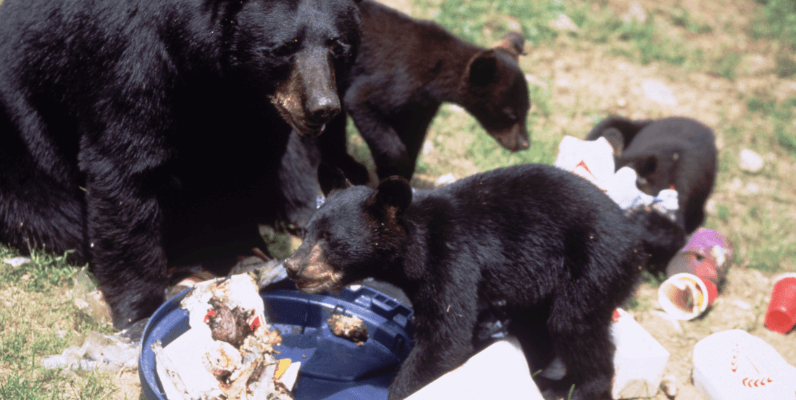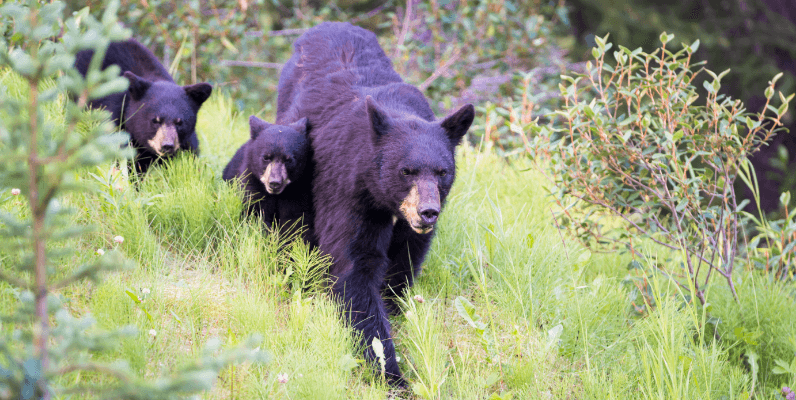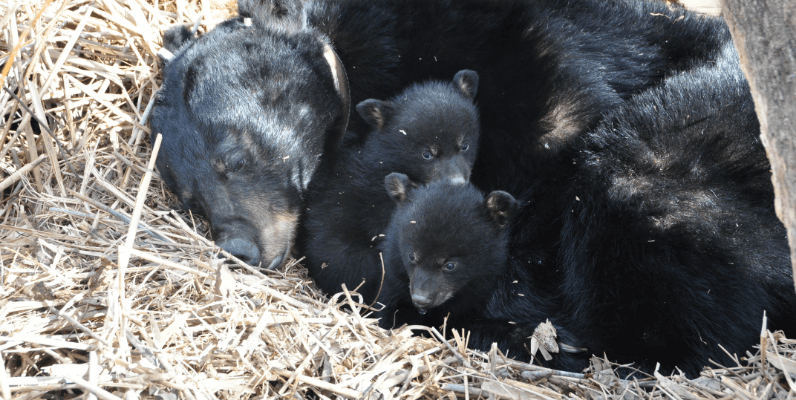
Black bears are not true hibernators and may be active throughout the year. Prevent bear encounters by securing garbage and other attractants. Learn More >

To report black bear damage and nuisance, call the DEP’s 24-hour, toll-free hotline: 1-877-WARN DEP (1-877-927-6337)
The American Black Bear is native to New Jersey. Prior to European settlement, black bears lived in forested regions throughout the state. As European settlement progressed, forests were cleared for towns, farming and lumber. Black bears were killed indiscriminately by settlers to protect their crops and livestock. Loss of habitat and indiscriminate killing caused the black bear population to sharply decline throughout the 1800s; by the mid-1900s less than 100 remained and these were restricted to the northern portion of the State (Lund 1980, McConnell et al. 1997.)
In 1953, the New Jersey Fish and Game Council (Council) classified the black bear as a game animal, affording it protection from indiscriminate killing. Limited hunting was legal for black bear until 1971 when the Council, based on an assessment by DEP’s Fish and Wildlife biologists, closed the hunting season.
Since the late 1970s, the Garden State’s black bear population has been increasing and expanding its range from the forested areas of northwestern New Jersey both southward and eastward. The population has grown due to protection afforded by game animal status, increased black bear habitat as agricultural land reverted to mature forests, and bears moving into New Jersey because of increasing bear populations in Pennsylvania and New York. Though most numerous in northwest Jersey, black bears now live throughout the state.
During the last 40 years, DEP’s Fish and Wildlife has steadily increased its efforts to responsibly manage our large and expanding black bear population and to be responsive to the increasing encounters between bears and people. Since Fiscal Year 2001, Fish and Wildlife has spent more $15 million on black bear management, including $2.5 million on education, $2.6 million on law enforcement, and $10.3 million on control, research and monitoring activities. These funds include $5.5 million from general treasury funds and more than $9.5 million from the Hunter and Angler Fund and federal grants.
In Fiscal Year 2022, DEP’s Fish and Wildlife enhanced and expanded nonlethal bear management strategies to reduce the number of human interactions with bears. DEP dedicated $1.5 million to hire additional conservation officers for bear management, to train local officials and to increase public education and outreach, among other enhancements.
NJDEP Fish and Wildlife’s integrated bear management strategy maintains bears at a density that provides for a sustainable population within suitable bear habitat while minimizing human -bear conflicts and reducing emigration of bears to unsuitable habitat in suburban and urban areas.

 Official Site of The State of New Jersey
Official Site of The State of New Jersey





